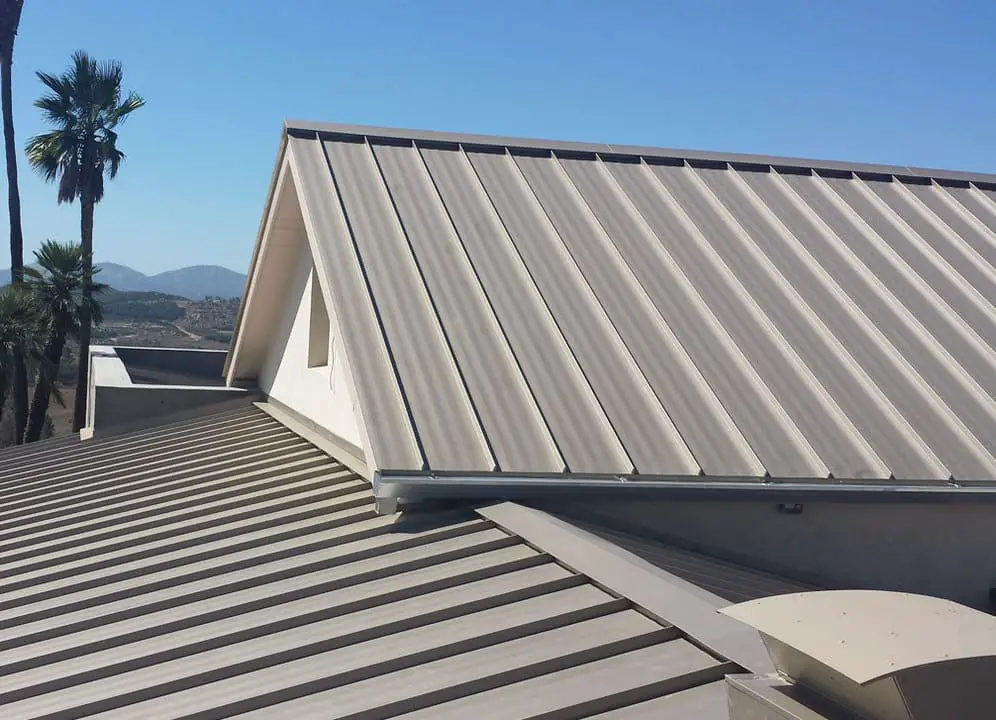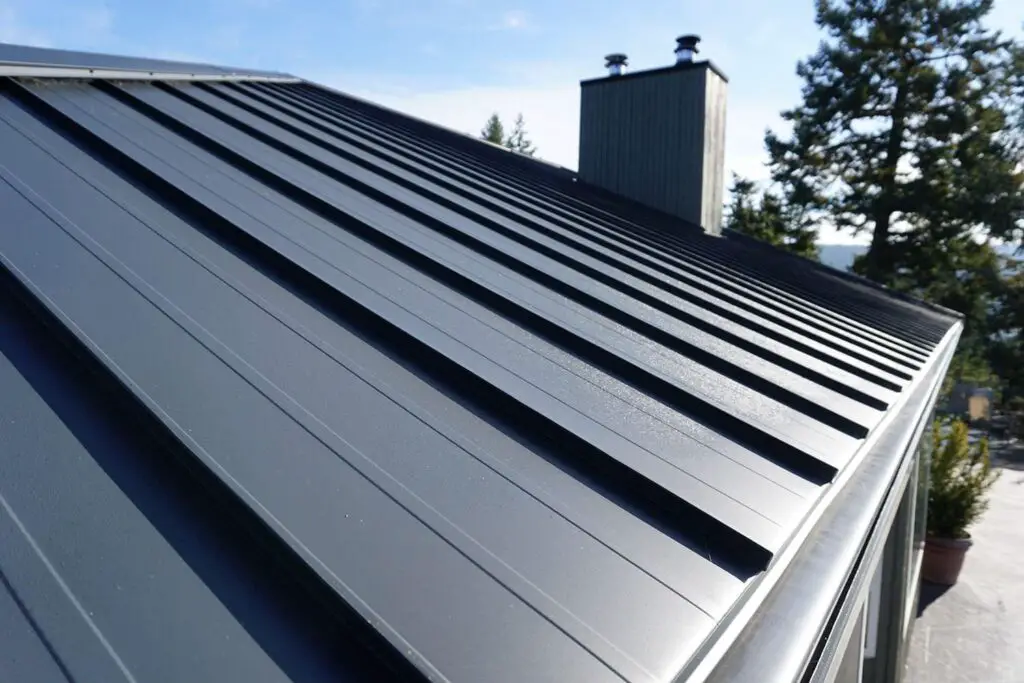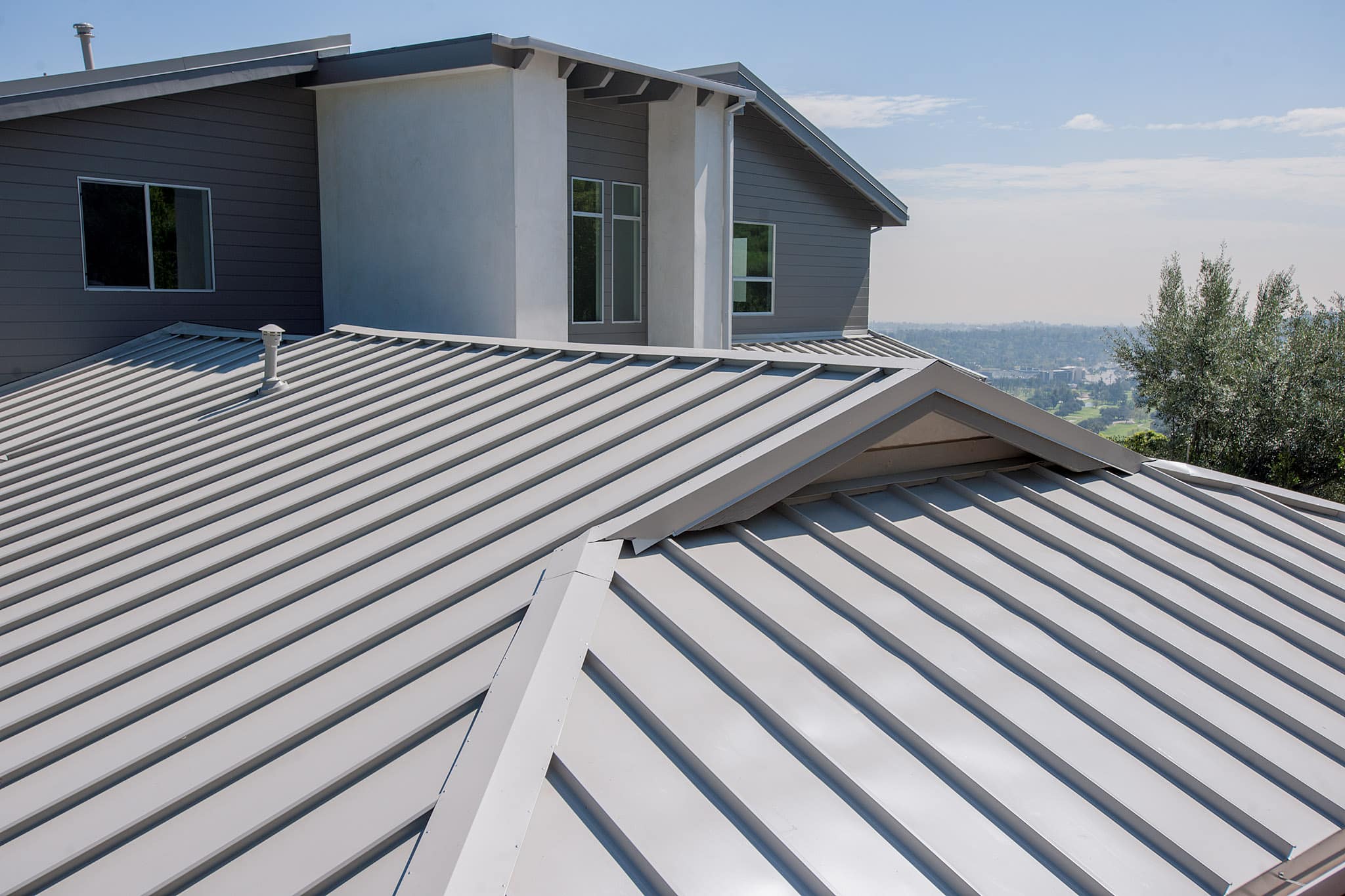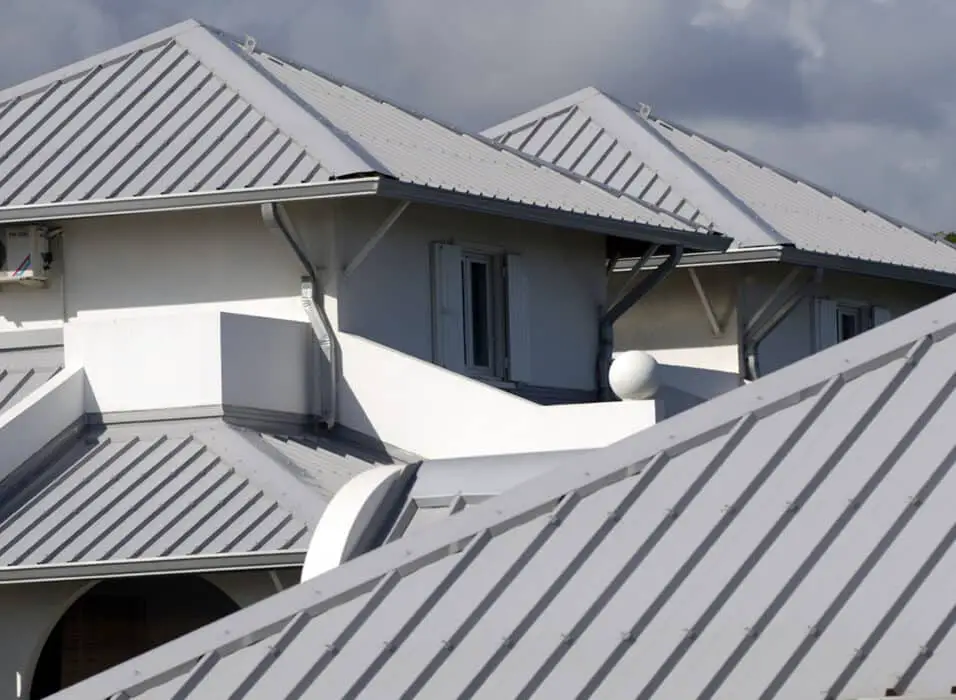What Gauge Is Metal Roofing
Introduction
What Gauge Is Metal Roofing: Metal roofing is becoming an increasingly popular choice for homeowners and businesses alike. With its durability, longevity, and aesthetic appeal, it offers numerous advantages over traditional roofing materials. However, one important factor that often comes into consideration when choosing metal roofing is its gauge. The gauge of metal roofing refers to its thickness, which can vary depending on the specific needs and requirements of the project.
When it comes to metal roofing, the gauge is a crucial aspect that determines its strength and durability. The gauge is measured in numbers, with lower numbers indicating thicker metal sheets. For instance, a 22-gauge metal roofing panel is thicker and stronger than a 29-gauge panel. The gauge of metal roofing is essential as it affects its ability to withstand various weather conditions, such as heavy rain, snow, hail, and strong winds.
Choosing the right gauge for metal roofing is crucial to ensure its performance and longevity. A thicker gauge metal roofing panel offers better resistance against impact and is less likely to dent or get damaged. This is particularly important in areas prone to severe weather conditions or areas with a high risk of falling debris, such as branches or hail. On the other hand, a thinner gauge metal roofing panel may be more suitable for projects with budget constraints or areas with milder weather conditions.
It is important to note that the gauge of metal roofing is not the only factor that determines its overall quality and performance. Other factors, such as the type of metal used, the coating applied, and the installation method, also play a significant role in the durability and longevity of the roof. Therefore, it is crucial to consider all these factors in conjunction with the gauge when selecting metal roofing for a project.
Additionally, it is advisable to consult with a professional roofing contractor or supplier who can provide expert advice and guidance on choosing the right gauge for metal roofing. They can assess the specific needs and requirements of the project, taking into account factors such as the building’s location, climate, and budget. By considering all these aspects, homeowners and businesses can make an informed decision and ensure that their metal roofing provides optimal protection and performance for years to come.

What is the standard gauge of a metal roof?
The most common gauges for metal roofing are 29, 26, 24, and 22 gauge. The vast majority of what we sell is either 26 gauge metal roofing or 24 gauge metal roofing. Low end agricultural jobs are normally 26 gauge or 29 gauge.
Introduction:
A metal roof is a popular choice for many homeowners due to its durability, longevity, and aesthetic appeal. When considering a metal roof, one important factor to consider is the gauge of the metal. The gauge refers to the thickness of the metal used in the roof, and it plays a crucial role in determining its strength and performance. In this article, we will explore the standard gauge of a metal roof and its significance in ensuring a reliable and durable roofing system.
The Importance of Gauge:
The gauge of a metal roof is a critical factor that determines its ability to withstand various weather conditions, such as heavy rain, snow, hail, and strong winds. A thicker gauge metal roof generally offers better resistance to these elements, making it more durable and long-lasting. Additionally, the gauge also affects the overall weight of the roof, which can impact the structural integrity of the building. Therefore, understanding the standard gauge for a metal roof is essential for making an informed decision when selecting the right roofing material.
Standard Gauge for Metal Roofs:
The standard gauge for a metal roof typically ranges from 22 to 29 gauge, with 22 gauge being the thickest and 29 gauge being the thinnest. It is important to note that the lower the gauge number, the thicker the metal. For instance, a 22-gauge metal roof is thicker and more robust compared to a 29-gauge roof. However, it is crucial to consider the specific requirements of your location and the intended use of the roof when determining the appropriate gauge for your metal roof.
Factors Influencing Gauge Selection:
Several factors influence the selection of the gauge for a metal roof. One of the primary considerations is the climate in which the roof will be installed. If you live in an area prone to severe weather conditions, such as heavy snowfall or high winds, opting for a thicker gauge metal roof is advisable. Additionally, the size and slope of the roof, as well as the building’s structural capacity, should also be taken into account when determining the appropriate gauge. Consulting with a professional roofing contractor can help you assess these factors and make an informed decision.
The standard gauge of a metal roof plays a crucial role in determining its strength, durability, and ability to withstand various weather conditions. Understanding the gauge system and considering factors such as climate, roof size, and structural capacity are essential when selecting the appropriate gauge for your metal roof. By choosing the right gauge, you can ensure a reliable and long-lasting roofing system that will protect your home for years to come.
Is 24 gauge good for a metal roof?
You Should Use 24 Gauge Metal Panels If:
Your roof is being installed in a climate with extreme weather conditions (hail, strong winds, heavy snow) where a thicker, more durable panel is required. Appearance is a top priority and you want the product with greater resistance to oil canning and dents from hail storms.
Introduction:
When it comes to choosing the right gauge for a metal roof, it is essential to consider various factors to ensure durability and longevity. One commonly used gauge for metal roofs is 24 gauge. In this article, we will discuss whether 24 gauge is a good option for a metal roof and explore its advantages and disadvantages.
Advantages of 24 gauge for a metal roof:
One of the primary advantages of using 24 gauge for a metal roof is its durability. This gauge is relatively thick, making it more resistant to dents and damage from external forces such as hail or falling branches. Additionally, the thickness of 24 gauge provides better protection against extreme weather conditions, including heavy rain, snow, and strong winds.
Another advantage of 24 gauge is its ability to withstand the test of time. Metal roofs with this gauge have a longer lifespan compared to thinner gauges. This means that homeowners can enjoy the benefits of a metal roof for many years without worrying about frequent repairs or replacements.
Disadvantages of 24 gauge for a metal roof:
While 24 gauge offers excellent durability, it is important to consider its weight. Metal roofs with this gauge are relatively heavier compared to thinner gauges. This can pose challenges during installation, especially if the underlying structure of the building is not designed to support the additional weight. It is crucial to consult with a professional contractor to assess the structural integrity of the building before opting for 24 gauge.
Another disadvantage of 24 gauge is its cost. As a thicker gauge, it requires more raw materials, resulting in a higher price compared to thinner gauges. Homeowners should consider their budget and weigh the long-term benefits against the initial investment before choosing 24 gauge for their metal roof.
24 gauge can be a good option for a metal roof due to its durability and longevity. However, it is essential to consider the weight and cost implications before making a decision. Consulting with a professional contractor is highly recommended to ensure the suitability of 24 gauge for your specific roofing needs.
What gauge is used for roofing?
Other factors are at play when it comes to metal roofing durability. The standard gauges for residential roofs are 22 through 29, with 26 as the most common choice. 22 is the thickest gauge, while 29 is the thinnest. For reference, a can of soda is usually 37-gauge, while the thickness of the hood of a car is 20-gauge.
Roofing gauge refers to the thickness or size of the metal used for roofing. It is an important factor to consider when choosing the right material for your roof. The gauge of roofing material determines its durability, strength, and ability to withstand various weather conditions. Different gauges are used for different types of roofs, and understanding the appropriate gauge for your roofing needs is crucial for ensuring a long-lasting and reliable roof.
When it comes to roofing, the most commonly used gauges are 24, 26, and 29. These gauges are typically used for residential roofing applications. The lower the gauge number, the thicker and stronger the metal. For instance, a 24-gauge metal is thicker and more durable than a 29-gauge metal. However, it is important to note that the gauge alone does not determine the quality of the roofing material. Other factors such as the type of metal, coating, and installation technique also play a significant role in the overall performance of the roof.
For residential roofing, a 24-gauge metal is commonly used. This gauge provides excellent durability and strength, making it suitable for withstanding harsh weather conditions such as heavy rain, snow, and strong winds. It offers better protection against impact and is less prone to denting or warping. Additionally, a 24-gauge metal roof is less likely to develop leaks or corrosion over time, ensuring a longer lifespan for your roof.
For commercial roofing, a 26-gauge metal is often preferred. This gauge strikes a balance between durability and cost-effectiveness. It provides sufficient strength and protection for commercial buildings while being more affordable compared to thicker gauges. A 26-gauge metal roof is still highly resistant to weather elements and can withstand the demands of commercial applications.
It is important to consult with roofing professionals or manufacturers to determine the appropriate gauge for your specific roofing needs. Factors such as the slope of the roof, local climate conditions, and budget should also be taken into consideration. By choosing the right gauge for your roofing project, you can ensure a reliable and long-lasting roof that will protect your property for years to come.
Which is thicker 24 gauge or 26 gauge?
The main difference between 24 and 26-gauge metal is the thickness. 24-gauge metal has a minimum of approximately 0.023,” and 26-gauge has a minimum of approximately 0.018”. While this difference may seem small or insignificant, it’s not — this makes 24-gauge metal about 27.8% thicker than 26-gauge.
Introduction:
When it comes to determining the thickness of metal sheets, gauge is the unit of measurement commonly used. In this case, we are comparing the thickness of 24 gauge and 26 gauge metal sheets. The gauge number represents the thickness of the metal, with a lower gauge number indicating a thicker sheet. Therefore, the question arises: which is thicker, 24 gauge or 26 gauge?
Understanding Gauge Measurement:
Before we delve into the comparison, it is important to understand how gauge measurement works. The gauge system originated in the United States and is widely used for measuring the thickness of various materials, including metals. In this system, the higher the gauge number, the thinner the metal sheet. Conversely, a lower gauge number indicates a thicker sheet. This means that a 24 gauge metal sheet is thicker than a 26 gauge metal sheet.
Comparing 24 Gauge and 26 Gauge:
Now that we have established the basic understanding of gauge measurement, let’s compare the thickness of 24 gauge and 26 gauge metal sheets. As mentioned earlier, a 24 gauge sheet is thicker than a 26 gauge sheet. However, the difference in thickness between these two gauges is relatively small.
Typically, a 24 gauge metal sheet measures approximately 0.0239 inches or 0.607 mm in thickness. On the other hand, a 26 gauge metal sheet measures around 0.0179 inches or 0.455 mm in thickness. Therefore, the 24 gauge sheet is approximately 0.006 inches or 0.152 mm thicker than the 26 gauge sheet.
Application and Considerations:
The choice between 24 gauge and 26 gauge metal sheets depends on the specific application and requirements. While the difference in thickness may seem minimal, it can have implications in certain scenarios. For instance, if the metal sheet needs to withstand heavy loads or provide enhanced durability, opting for a thicker gauge, such as 24 gauge, would be more suitable.
However, it is important to note that thicker gauge sheets are generally more expensive and heavier. Therefore, if the application does not require a high level of thickness, a 26 gauge sheet might be a more cost-effective and lightweight option.
When comparing the thickness of metal sheets, the gauge number plays a crucial role. In the case of 24 gauge and 26 gauge metal sheets, the former is thicker than the latter. However, the difference in thickness between these two gauges is relatively small. The choice between 24 gauge and 26 gauge ultimately depends on the specific application, considering factors such as load-bearing capacity, durability requirements, cost, and weight.
Which is stronger 26 or 29 gauge metal roofing?
A 26-gauge roof is not only thicker but also heavier than 29-gauge. The added weight gives the roof a greater chance of staying intact in the event of a very heavy wind storm. 26 gauge will out-perform any 29 gauge material. In hail prone areas, a heavier gauge will make sense due to impact-resistance.
Introduction:
When it comes to metal roofing, the gauge of the metal plays a crucial role in determining its strength and durability. In this case, we are comparing 26 gauge and 29 gauge metal roofing. Both gauges have their own advantages and considerations, and understanding their differences can help you make an informed decision for your roofing needs.
Strength and Durability:
One of the primary factors to consider when comparing metal roofing gauges is their strength. Generally, the lower the gauge number, the thicker and stronger the metal. In this case, 26 gauge metal roofing is thicker and stronger than 29 gauge metal roofing. The additional thickness of the 26 gauge metal provides enhanced durability and resistance to external forces such as wind, hail, and impact. It is better suited for areas with harsh weather conditions or where the roof may be subjected to heavy loads, such as snow accumulation.
Cost Considerations:
While 26 gauge metal roofing offers superior strength, it is important to consider the cost implications. Thicker gauges typically come at a higher price point compared to thinner gauges. Therefore, if budget is a significant factor for you, opting for 29 gauge metal roofing may be a more cost-effective choice. However, it is essential to balance cost considerations with the specific requirements of your roofing project to ensure long-term satisfaction and durability.
Installation and Weight:
Another aspect to consider when comparing metal roofing gauges is the ease of installation and the weight of the materials. Thicker gauges, such as 26 gauge, may require additional structural support due to their heavier weight. This can increase the complexity and cost of installation. On the other hand, 29 gauge metal roofing is lighter and may be easier to handle and install. It is important to consult with a professional roofing contractor to determine the specific requirements and feasibility of each gauge for your project.
Appearance and Aesthetics:
While strength and cost are important considerations, the appearance and aesthetics of the metal roofing should not be overlooked. Thicker gauges, such as 26 gauge, can provide a more substantial and visually appealing look to your roof. The added thickness can create a sense of quality and durability. However, the choice between 26 gauge and 29 gauge ultimately depends on your personal preferences and the overall architectural style of your home or building.
When comparing 26 gauge and 29 gauge metal roofing, it is essential to consider factors such as strength, cost, installation requirements, and aesthetics. While 26 gauge metal roofing offers superior strength and durability, it comes at a higher cost and may require additional structural support during installation. On the other hand, 29 gauge metal roofing is more cost-effective and easier to handle, but it may not provide the same level of strength and visual appeal. Ultimately, the choice between the two gauges depends on your specific needs, budget, and desired outcome for your roofing project.
The typical gauge range for metal roofing varies depending on the specific type of metal being used. However, the most common gauge range for metal roofing is between 22 and 29 gauge. The gauge of metal roofing refers to the thickness of the metal, with a lower gauge indicating a thicker and more durable material.
Thicker gauges, such as 22 or 24 gauge, are often used for commercial and industrial metal roofing applications where durability and strength are of utmost importance. These thicker gauges provide enhanced resistance to impacts, hail, and extreme weather conditions, making them suitable for areas prone to severe weather events.
On the other hand, residential metal roofing often utilizes gauges in the range of 26 to 29. While these gauges are slightly thinner, they still offer excellent durability and strength for residential applications. Thinner gauges can be more cost-effective and easier to install, making them a popular choice for homeowners.
How does the gauge of metal roofing affect its durability and strength?
The gauge of metal roofing plays a crucial role in determining its durability and strength. Gauge refers to the thickness of the metal, with a lower gauge indicating a thicker and stronger material. In general, metal roofing is available in gauges ranging from 22 to 29, with 22 being the thickest and 29 being the thinnest.
A higher gauge number means a thinner metal, which can make the roofing more susceptible to damage and less durable in the long run. Thicker gauges, on the other hand, offer enhanced resistance to impacts, such as hail or falling debris, and are better equipped to withstand extreme weather conditions like high winds. Therefore, it is important to consider the specific environmental factors and potential hazards in your area when selecting the appropriate gauge for your metal roofing.
Additionally, the gauge of metal roofing can also impact its structural integrity. Thicker gauges provide better support and load-bearing capacity, making them suitable for larger roofs or areas with heavy snowfall. Thinner gauges, while more affordable, may require additional support structures to ensure the roof’s stability. It is essential to consult with a professional roofing contractor or engineer to determine the optimal gauge for your specific roofing needs.
Are there specific gauge recommendations for different types of metal roofing materials?
Yes, there are specific gauge recommendations for different types of metal roofing materials. The gauge of metal roofing refers to its thickness, with a lower gauge indicating a thicker and stronger material. Different types of metal roofing materials have different gauge recommendations based on their specific characteristics and intended use.
For example, steel roofing typically has gauge recommendations ranging from 22 to 29, with lower gauges providing greater durability and strength. Aluminum roofing, on the other hand, often has gauge recommendations ranging from 0.0236 to 0.0276 inches, as aluminum is naturally lighter and less dense than steel. Copper roofing, known for its aesthetic appeal and longevity, usually has gauge recommendations ranging from 16 to 20.
It is important to consult with manufacturers or roofing professionals to determine the specific gauge recommendations for the type of metal roofing material you are considering. They can provide guidance based on factors such as the expected weather conditions, building structure, and desired lifespan of the roof. Following the recommended gauge for your chosen metal roofing material will help ensure its durability, strength, and overall performance.
Can the gauge of metal roofing impact its resistance to weather elements such as wind and hail?
Yes, the gauge of metal roofing can significantly impact its resistance to weather elements such as wind and hail. The gauge refers to the thickness of the metal, with a lower gauge indicating a thicker and stronger material. In general, metal roofing with a lower gauge is more durable and better equipped to withstand harsh weather conditions.
When it comes to wind resistance, a thicker gauge metal roofing can better resist the forces exerted by strong winds. Thicker gauges provide increased structural integrity, reducing the risk of the roof being lifted or damaged during high winds. Additionally, metal roofing with a lower gauge often has better interlocking systems, which further enhances its ability to withstand wind uplift.
Similarly, the gauge of metal roofing plays a crucial role in its resistance to hail damage. Thicker gauges offer better protection against hail impacts, as they are less likely to dent or puncture under the force of hailstones. Metal roofing with a higher gauge can absorb and distribute the impact energy more effectively, minimizing the potential for damage.
Can the gauge of metal roofing impact its resistance to weather elements such as wind and hail?
Yes, the gauge of metal roofing can significantly impact its resistance to weather elements such as wind and hail. The gauge refers to the thickness of the metal, with a lower gauge indicating a thicker and stronger material. In general, metal roofing with a lower gauge is more durable and better equipped to withstand harsh weather conditions.
When it comes to wind resistance, a thicker gauge metal roofing can better resist the forces exerted by strong winds. Thicker gauges provide increased structural integrity, reducing the risk of the roof being lifted or damaged during high winds. Additionally, metal roofing with a lower gauge often has better interlocking systems, which further enhances its ability to withstand wind uplift.
Similarly, the gauge of metal roofing plays a crucial role in its resistance to hail damage. Thicker gauges offer better protection against hail impacts, as they are less likely to dent or puncture under the force of hailstones. Metal roofing with a higher gauge can absorb and distribute the impact energy more effectively, minimizing the potential for damage.

Conclusion
Metal roofing is a popular choice for homeowners and businesses alike due to its durability, longevity, and aesthetic appeal. One important factor to consider when selecting metal roofing is the gauge, which refers to the thickness of the metal. The gauge of metal roofing plays a crucial role in determining its strength, resistance to weather elements, and overall performance.
When it comes to metal roofing, the gauge typically ranges from 22 to 29, with the lower numbers indicating thicker metal. A lower gauge metal roofing, such as 22 or 24, offers greater strength and durability, making it suitable for areas prone to severe weather conditions like heavy snowfall or high winds. Thicker gauges also provide better resistance against impacts, reducing the risk of denting or damage from falling debris. On the other hand, higher gauge metal roofing, such as 26 or 29, is lighter and more flexible, making it easier to install and handle. However, it may be less resistant to extreme weather conditions and more prone to denting.
It is important to note that the appropriate gauge for metal roofing depends on various factors, including the climate, building structure, and personal preferences. For regions with mild weather conditions, a higher gauge metal roofing may be sufficient to provide adequate protection and longevity. However, in areas with harsh climates or where the risk of impact damage is high, a lower gauge metal roofing is recommended to ensure maximum durability and resistance.
The gauge of metal roofing is a crucial consideration when selecting the right roofing material for your needs. The gauge determines the thickness of the metal and plays a significant role in its strength, resistance to weather elements, and overall performance. Thicker gauges offer greater durability and resistance against impacts, making them suitable for areas prone to severe weather conditions. On the other hand, higher gauge metal roofing gauge is lighter and more flexible, making it easier to handle and install. Ultimately, the appropriate gauge for metal roofing depends on factors such as climate, building structure, and personal preferences, and it is essential to choose a gauge that provides the desired level of protection and longevity for your specific location and requirements.








